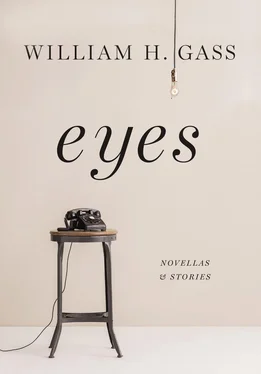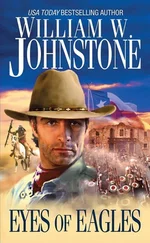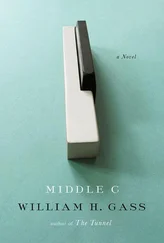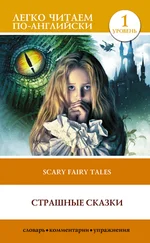Mr. Gab’s back was soon bent over MISCELLANEOUS INTERIORS. From his stool where he was perched once more like some circus animal, Mr. Stu couldn’t see a single interesting thing though he knew that rummaging was going on. He felt in his stomach a glob of gas, a balloon filled with rising apprehension. Mr. Gab, having done his dirty work, returned to his desk empty-handed, allowing the store to become as law-abiding as before. With his Pater closed, Mr. Stu, as he would from this morning on be called, began to fill the back of Mr. Gab’s head with his own thoughts, enjoying a vacation in another body, even old Mr. Gab’s, which had to be a low-rent cottage in a run-down resort, but — hey — several limps up from the ramshackle where he currently was.
Other eyes, both reasonably well off, saw through gray glass into the street where the world would scarcely pass. He imagined he was sixteen, which was perhaps his age. He had the legs of that Caravaggio cupid which had so exercised Mr. Gab when he’d come upon them the other day in Rüdiger Klessmann’s catalogue of the paintings in the Berlin Museum (remember that liar’s name, Mr. Gab had commanded). Naked, the kid was. Very naked. A pornpainting, Mr. Gab said in sentence. It is written here that this is the figure of a boy about twelve. Sitting on a globe. The posture is contorted, but not like Mr. Stu on his stool, Mr. Stu thought. Look, this Klessmann fellow says that every wrinkle and fold of the skin is reproduced with the utmost realism. Ut-most. Look. What do you see?
U-Stu saw a cupid with arms and thighs wide apart, as wide as full sexual reception might require, and musculated like a twenty-five-year-old wrestler, though wearing the weenie of a boy of six, one nipple showing in a swath of light which flew in conveniently from the left to dispel a general darkness; in fact to fling it aside like a parted robe and reveal a creased and belly-buttoned stomach below a strong broad chest where the nipple lay, as purple as a petal fallen from a frostbitten rose (Mr. Gab had said as if quoting). The head, however, bore a leering drunken grin as salacious as they are in Frans Hals. Those huge thighs, though, Mr. Gab fairly growled, how are they rendered? See the way they are rounded into a silk-soaked softness? (Was he quoting still?) An amazon in the guise of a baby boy. Holding the bow of a violin! What allegorical gimcrackery! But no! another masterpaint, Mr. Gab announced, as if introducing a vaudeville act. And Klessmann dares to call this pornographic pastiche realism!
Caravaggio was simply a ruffian. His darks were merely dramatic, his colors were off, his attitudes appropriate to saloons. He was a pretender in front of reality, and reality had made him a murderer and a convict. Tenebrist indeed. Remember that word. (His assistant tried, but he understood it to mean “tenuous.”) Mr. Gab could be relentless. Carrahvaggeeoh, he’d growl. For him darkness is never delicate. Carrahvaggeeoh didn’t understand what a shadow was — an entire region of the world. Ah…we know where to go for shadows.
By now Mr. Stu was able to interpret Mr. Gab. Realism — truth — was the exclusive property of the photograph. He regularly ridiculed paintings that presented themselves as lifelike. About trompe l’oeil compositions he was particularly withering. What kind of streetcar accident has caused this rabbit, that jug, this — hah! — hunting horn, that — hah! — hat, that knife, that — hey? — horseshoe, and that key — a key! — those two dead birds? — to hop to run to fly to get carried in a carriage to see the smash, rehear the crash, and enjoy the bloody scene? What drew them to this place? These dots of detail? That’s the real? reality is a stupid collection? trophies of a scavenger hunt? Whose eye would they fool? — hey? — whose?
Mr. Stu, now in the guise of Caravaggio, stretched his grand legs wide, even if he wouldn’t fool anyone, and flaunted his cute little sex. Those few who might pass would never look in. Anyway. He wondered, as he had so often, what it would be like to be ordinary and have had an ordinary childhood, not one in a Home where everything had to imitate shoes in a line. And nothing had ever been his: not his bed or blanket, the table at which he drew, not a wall, not a window, not a fork or spoon, lent instead, shared, maybe his underclothes had been his, but only because they wouldn’t let anyone else soil them. He’d left with the clothes on his back as the cliché maintains, so they had to be his: his shoes, and his socks and his bulbous nose. Even now his room was rented, his books were borrowed, his stool belonged to his employer, as did the boxes of photographs, presumably they weren’t all stolen. At the moment, though, he owned a violin and sat heavily on his own globe.
He’d noticed how Mr. Gab did it: how he studied a picture (this one, another Sudek, had showed up out of the blue to be held under Mr. Stu’s nose) until he knew just where the darks went (had he bought it from that haughty high-hatter? that would not have been wise); dark filling almost the whole road except for the wet and glistening dirt that still defined some wagon tracks (the temptation would have been far greater than for another piece of cake), the sky, too, setting with the paling sun, and walls and buildings nothing but edges, tree trunks rising into the dying light, crisp and unconfused (had it been dropped off by the Weasel? God forbid), rows of insulators perched like birds for the night on faintly wired poles, but so composed…made of mist…composed so that the bushes at one end of the panoramic rhymed with the tree limbs at the other; thus the blacks beneath held up the grays above, so the soft glow of the failing sun, which could be still seen in the darkening sky, might lie like a liquid on the muddy lane…and Mr. Gab would inhale very audibly, as if a sigh had been sent him from somewhere, because only once had the world realized these relations; they would never exist again; they had come and gone like a breath.
An image had been etched on an eye.
Mr. Stu had made Mister, all the same, even if he didn’t have a childhood; and he had a job — a job that was his job, no one else’s, as stooled to its heights as an accountant’s — and he had his own room even if it was rented, even if it was paid for by his father figure; and he had a market where he could swipe fruit, a weedy field to sit in now and then, a library card for borrowing books; and a worry which was ruining his reveries. If the cops got Mr. Gab, what would become of Mr. Stu? No job then. No room. He could read in the weeds. But the authorities didn’t like the appearance it gave the neighborhood when he flopped down in the empty lot and looked up at a clutter of clouds or saw inside a deeply receding blue sky a scented silent light.
With Walter Pater parked, Mr. Stu settled on his stool and set his sights on the back of Mr. Gab’s head, and bore into it with his whole being until he felt he was looking out into the empty sun-blown street where now and then a figure would pass, moving more often left than right, while he wondered what was to be done, what he should do to defend them from the calamity that was coming. After closing, after, as he imagined, still wholly inhabiting Mr. Gab, he’d taken that body to bed in the Chinese flophouse where Mr. Gab’s somewhat resourceful assistant had found a curtain made of mediocre lace at the market — near that stall from which, by using the crowd, he’d appropriated fruit — just a cloud of thread to tack to the wall above his window so that now when Mr. Gab’s hand drew the curtain the room grew gray and a few of the city’s lights spangled the frail netting where, bed-clothed, u-Stu in the garb of Mr. Gab could still see, till sleep, a kind of sky, and pretend he was napping in the weeds or smelling space like a moth; so after closing, Gab gone to the flop, what was left of Mr. Stu would go through the boxes one by one and systematically, if there was a system, hunt for pictures that were likely pilfered in order to hide them…yes, by reswapping bodies for the task, putting Gab back in his own boots — maybe too many switcheroos to seem dreamable — and subsequently to slide the suspicious photographs into such other boxes as he’d have collected under his so far fleabagless bed, where no one would ever think to pry, thus cleansing the premises of the taint of loot and securing the safety of what was looking more and more like a possible life.
Читать дальше












